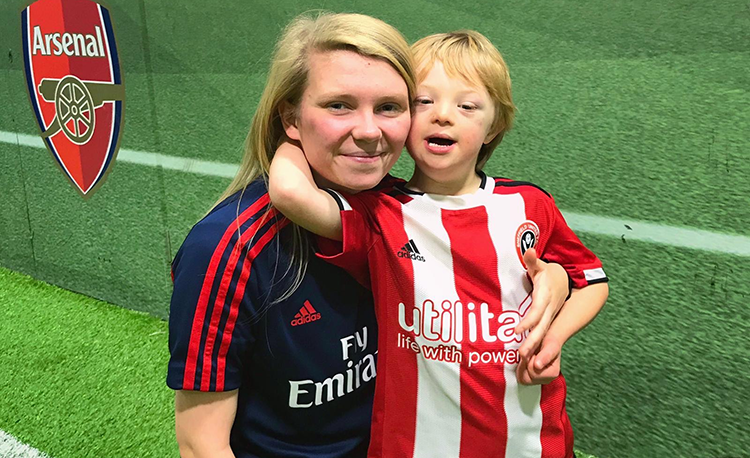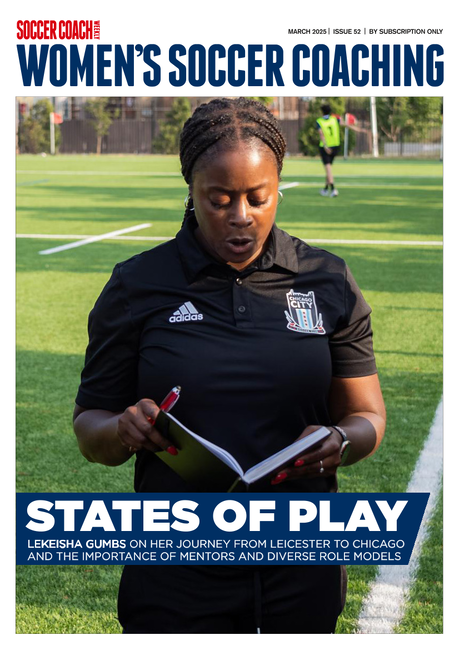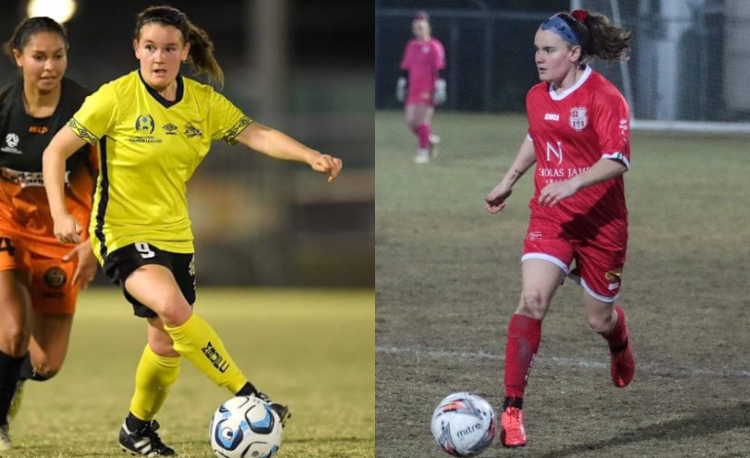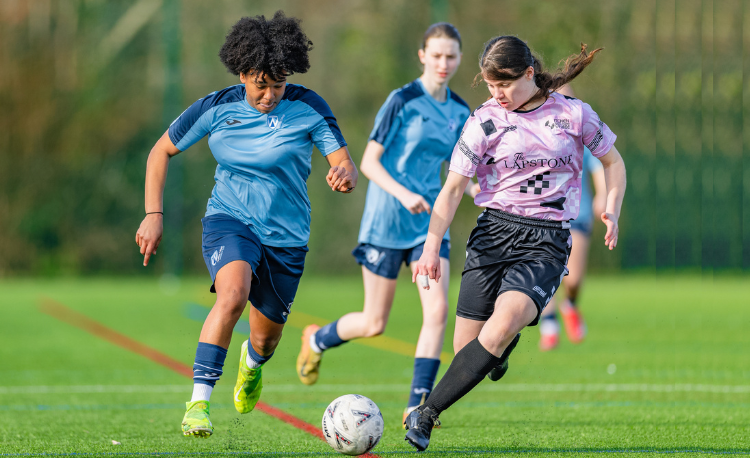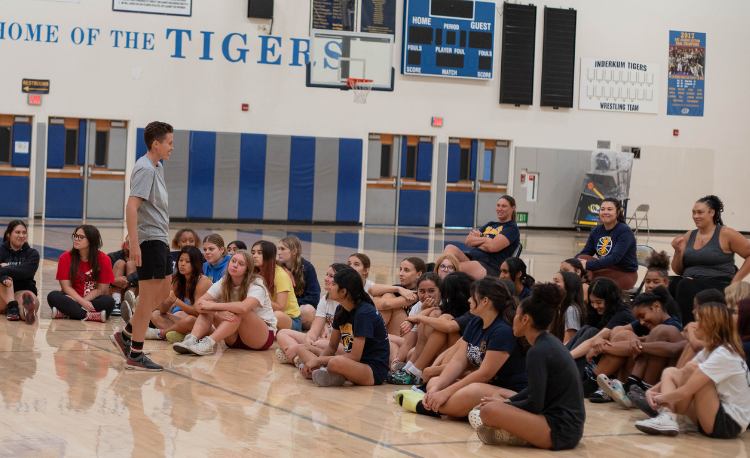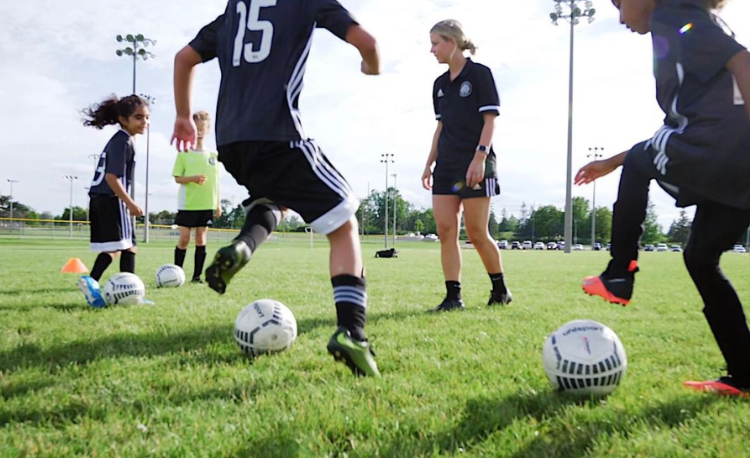You are viewing
2 of your 3 free articles
Rewards of coaching Down syndrome kids
Coaching Adviceby Maisie Hayden
Arsenal in the Community coach Maisie Hayden on her passion for disability soccer, what it has taught her and how it has added new strings to her bow...
For the past six years, I have coached at Arsenal in the Community, mainly within our disability projects.
These include adult mental health, children with autism and adult learning disability sessions. But my favourite is our Down syndrome session, run by a fantastic group called North London United.
We run two sessions, one for children aged 6-11 and another for those aged 12-18.
With the younger group, we aim to focus on their body movements with and without the ball, and helping the players gain a better understanding of instructions.
For our older players, we provide training for them to develop their skills to the next level and preparing them for tournaments we organise against other clubs.
I loved every minute of the first session I did with the Down syndrome groups and still do.
This initial interest led me to gain as much experience and as many relevant qualifications as I could to support my own development and best support the players.
I now have a range of qualifications, including a Level 1 in disability football, sign language for deaf players, sensory considerations for autistic children and even Level 1 in disability [field] hockey.
As a result, I have a better understanding of how to support the kids on and off the pitch - for example, if we have a child who is deaf, I am able to include them by using sign language.
The challenges I have faced with coaching our Down syndrome group is that it can be very hard for players to understand how to complete a certain game, which can make them very frustrated.
This has required a lot of patience, as I show them gradually how to get the hang of the skill.
Having patience, and demonstrating in a calm manner how they can overcome something difficult, puts the players at ease and makes them less worried about getting something wrong, when others may have achieved it the first time.
Luckily, I have had so much support from our disability-project leader at Arsenal, Luke, who has helped me gain a better understanding of how to coach within so many different projects.
Being involved with the Down syndrome groups is so rewarding, as you can always see how happy the kids are to be there. The children also develop in so many ways, as we don’t only focus on their soccer skills.
"I loved every minute of the first session I did with the Down syndrome groups..."Our sessions are intended for them to stay active - but, most importantly, be part of a sport they love.
The majority of our players are regulars and have been coming to the club for years, which means they see each other all the time and have developed such good social skills.
Coaching the Down syndrome groups has taught me so many skills, beneficial to coaching all players.
I am able to adapt very quickly - I could have an adult learning disability session in the morning, then go to an all-girls' after-school session, with a Down syndrome session in the evening. I have also been able to bring my organisation skills and patience to non-disability sessions.
The best advice I would give other coaches who are thinking of getting involved within disability work is, simply, to do it.
I never thought this would be an area of coaching I would be involved with. I didn't think I would have been good enough to be part of it.
However, I definitely think it should be something all coaches experience - it is such a great thing to be part of.
Related Files
WSC-016-rewards-of-coaching-down-syndrome-kids.pdfPDF, 520 KB
Newsletter Sign Up
Newsletter Sign Up
Discover the simple way to become a more effective, more successful soccer coach
In a recent survey 89% of subscribers said Women's Soccer Coaching makes them more confident, 91% said Women's Soccer Coaching makes them a more effective coach and 93% said Women's Soccer Coaching makes them more inspired.
*includes 3 coaching manuals
Get Inspired
All the latest techniques and approaches
Women's Soccer Coaching offers proven and easy to use soccer drills, coaching sessions, practice plans, small-sided games, warm-ups, training tips and advice.
We've been at the cutting edge of soccer coaching since we launched Soccer Coach Weekly in 2007, creating resources for the grassroots youth coach, following best practice from around the world and insights from the professional game.
